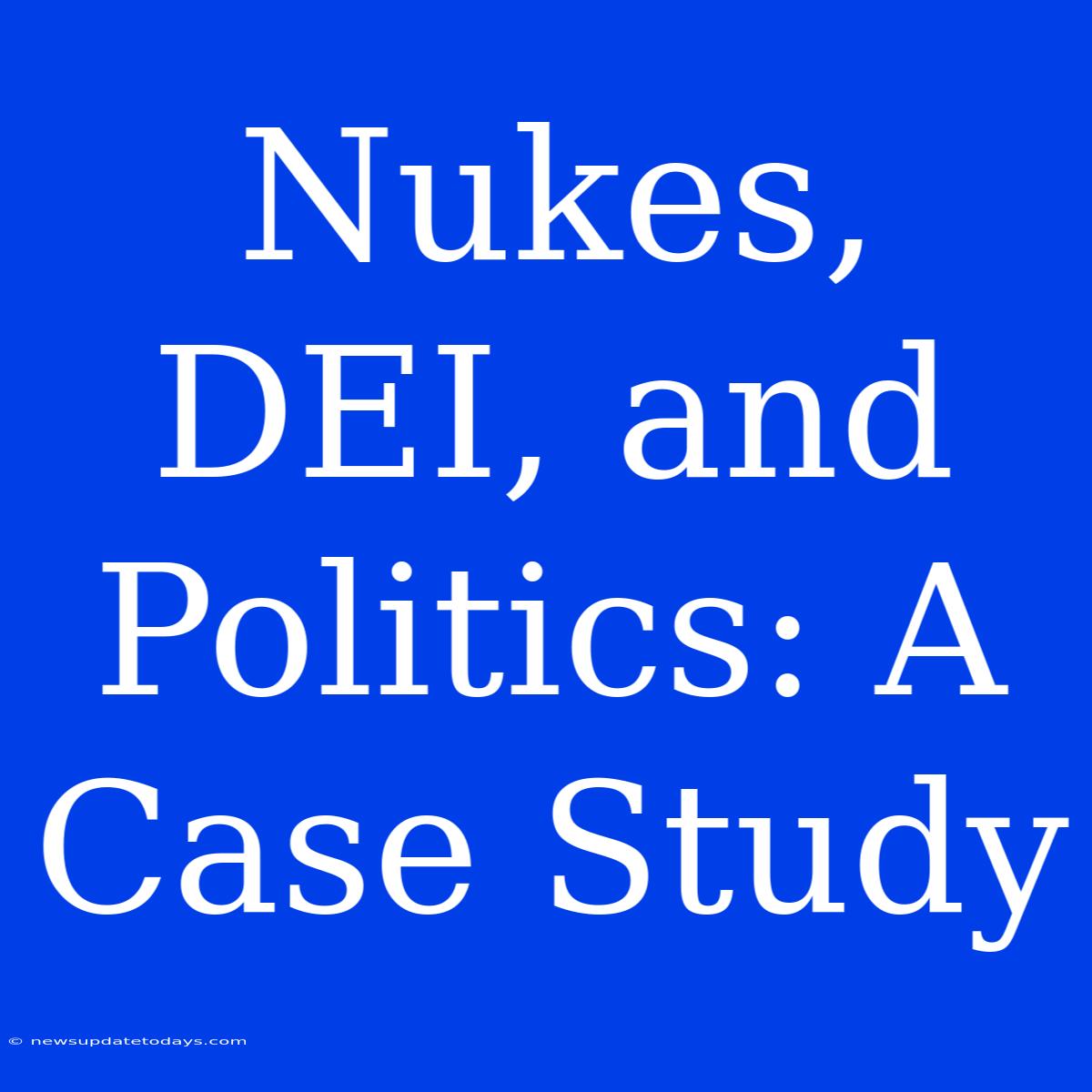Nukes, DEI, and Politics: A Complex Interplay
The intersection of nuclear weapons policy, Diversity, Equity, and Inclusion (DEI) initiatives, and political maneuvering presents a fascinating and often contentious case study. While seemingly disparate, these areas are increasingly intertwined, shaping national security strategies and sparking heated public debate. This article explores this complex interplay, examining the implications for policymaking and societal well-being.
The Nuclear Arsenal: A Legacy of Inequality?
The development and maintenance of nuclear arsenals have historically been male-dominated fields, reflecting broader societal inequalities. From the Manhattan Project onwards, leadership positions and technical expertise have been disproportionately held by men. This lack of diversity potentially impacts decision-making processes, leading to blind spots and overlooked perspectives crucial for responsible nuclear stewardship. Does a homogenous group adequately consider the long-term ethical, social, and environmental consequences of nuclear weapons? This question lies at the heart of the debate.
Furthermore, the geographical distribution of nuclear weapons facilities and their associated environmental risks often disproportionately affect marginalized communities. Environmental justice concerns become deeply relevant when considering the legacy of nuclear testing and waste disposal, raising critical questions about equity and fair distribution of risks and benefits.
DEI Initiatives in the Nuclear Sector: Progress and Challenges
In recent years, there has been a growing recognition of the need for greater diversity and inclusion within the nuclear sector. Many organizations are actively pursuing DEI initiatives, aiming to recruit and retain individuals from underrepresented groups. These initiatives often focus on:
- Increasing female representation: Encouraging women to pursue careers in STEM fields related to nuclear science and engineering.
- Promoting racial and ethnic diversity: Addressing historical biases and creating more equitable opportunities for people of color.
- Fostering inclusivity for LGBTQ+ individuals: Creating a welcoming and supportive environment for all employees, regardless of sexual orientation or gender identity.
However, implementing effective DEI programs within the highly regulated and security-conscious nuclear sector presents unique challenges. Background checks, security clearances, and the highly specialized nature of the work can create barriers to entry for individuals from diverse backgrounds.
Political Ramifications and Public Perception
The integration of DEI principles into nuclear policy is not without its political complexities. Some argue that prioritizing DEI initiatives detracts from the primary focus of national security, while others see it as an essential component of responsible governance. Public perception plays a significant role, with varying levels of support for these initiatives depending on political affiliations and broader societal values.
The debate often revolves around competing priorities: national security versus social justice, and the perceived trade-offs between these objectives. This creates a challenging environment for policymakers seeking to balance competing demands.
Conclusion: Navigating the Complexities
The intersection of nuclear weapons policy, DEI, and politics necessitates a nuanced approach. While national security remains paramount, ignoring the issues of diversity, equity, and inclusion within the nuclear sector risks perpetuating historical injustices and undermining the long-term effectiveness of nuclear deterrence and disarmament efforts. Moving forward requires a commitment to both national security and social justice, fostering an inclusive environment that leverages the diverse perspectives of all stakeholders. Further research and open dialogue are essential to navigate this complex terrain and build a more just and secure future.

